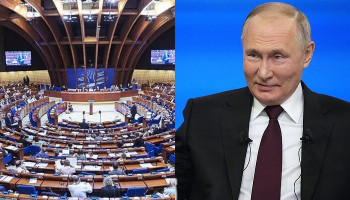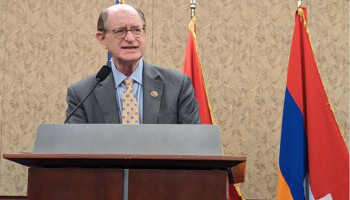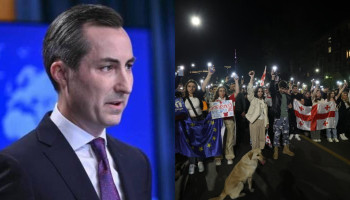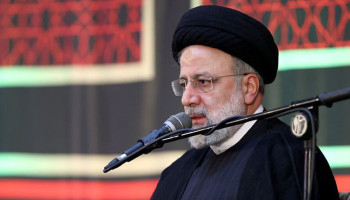Theresa May Loses Overall Majority in U.K. Parliament
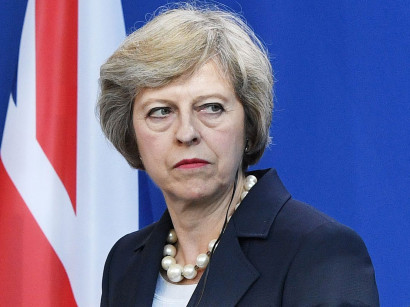 Prime Minister Theresa May of Britain suffered a major setback in a tumultuous election on Thursday, losing her overall majority in Parliament and throwing her government into uncertainty less than two weeks before it is scheduled to begin negotiations over withdrawing from the European Union. Mrs. May, the Conservative leader, called the snap election three years early, expecting to cruise to a smashing victory that would win her a mandate to see Britain through the long and difficult negotiations with European leaders over the terms of leaving the union. But according to results reported early Friday morning, the extraordinary gamble Mrs. May made in calling the election backfired. She could no longer command enough seats to avoid a hung Parliament, meaning that no party has enough lawmakers to establish outright control. With 98 percent of the seats in the House of Commons accounted for, the BBC reported that Mrs. May’s Conservatives would remain the largest party. But they were projected to win only 318 seats, down from the 331 they won in 2015, and eight seats short of a majority. scientella 10 minutes ago One Conservative lawmaker, Anna Soubry, said on national television that it had been a “dreadful campaign” and would force the prime minister to “consider her position.” The opposition Labour Party, led by Jeremy Corbyn, was projected to be on track for 262 seats, up 30 from 2015, significantly elevating Mr. Corbyn’s standing after predictions that his party would be further weakened. “Whatever the final result, we have already changed the face of British politics,” Mr. Corbyn said. Last month, in an effort to show “just how much is at stake” in the election, Mrs. May acknowledged that even a small loss of seats would amount to a defeat. “The cold, hard fact is that if I lose just six seats, I will lose this election, and Jeremy Corbyn will be sitting down to negotiate with the presidents, prime ministers and chancellors of Europe,” she wrote in The Daily Mail.But early on Friday, Mrs. May hinted that her Conservative Party would try to form a government even if it did not have a majority, arguing that Britain needed “a period of stability.” If the Conservative Party “has won the most seats and probably the most votes, then it will be incumbent on us,” she said. The Scottish National Party was projected to fall to 35 seats from 56, while the centrist Liberal Democrats were projected to win 13 seats, up five from 2015. The forecast raised the prospect that neither major party would be able to form a government without help from another party. If a coalition cannot be formed, another election could be in the offing. And there was a wild card. Northern Ireland’s Sinn Fein party, which won seven seats, said it would not occupy them, in keeping with its longstanding policy. That would lower the threshold for Mrs. May’s party to establish an effective majority. The former chancellor of the Exchequer, George Osborne, said that for Mrs. May losing a majority would be “completely catastrophic” for her and the Conservative Party. But he added that it was also difficult to see how the Labour Party could put together a coalition government. “So it’s on a real knife edge,” he said. Clearly, Britons confounded expectations and the betting markets once again. The uncertainty could complicate Britain’s exit from the European Union, known as Brexit. Negotiations over the withdrawal are scheduled to start in just 11 days. European leaders want a stable, credible British government capable of negotiating, but Mrs. May’s plea to voters for a strong mandate for Brexit failed badly. The official outcome of the vote may not be known until lunchtime on Friday. But the British pound fell sharply after a national exit poll showing that the Conservatives could lose their majority. Within seconds of the exit poll’s release, the pound lost more than 2 cents against the dollar, falling from $1.2955 to $1.2752. Simon Hix, a professor of political science at the London School of Economics, said the projections showed the public’s resistance to the complete break from Europe that Mrs. May has championed. Still, Mrs. May was set to win, he asserted. “She hasn’t lost this election,” he said.But Steven Fielding, professor of political history at the University of Nottingham, said that he was almost speechless at the projections. If they held, he said, Mrs. May “is gone.” “It’s just a matter of time — even if they have a reduced majority,” he continued. “She asked for a mandate, she expected a strong endorsement, so her judgment is completely under question.” “She was terrible in the campaign,” he added. “She is primarily the person who will be seen to be responsible for this.” Kallum Pickering, a senior economist at Berenberg Bank in London, also suggested that Mrs. May was in trouble. “Even if May manages to cling on to a majority, we see a real risk that her leadership is challenged, especially following an unsuccessful election campaign that has managed to both weaken her personal credibility and make far-left Labour leader Corbyn relevant again,” he said as the votes were being counted. Given the two terrorist attacks that took place during the campaign, security was tight on Thursday as Britons voted, with a heavy police presence.Maria Balas, 28, a waitress, said security was the prime issue. “England is under attack and at this time we need a strong leader more than ever,” Ms. Balas said after casting her vote for the governing Conservative Party. “I don’t like Theresa May, and I wouldn’t have bothered to vote if this election was all about giving her more power to take us into the mess of Brexit, but now we are dealing with a security crisis and I think she is the most qualified person in the running who can deal with that.” In London’s eastern borough of Hackney, however, young people seemed more concerned about future job prospects. “The Tories only care about the rich and their interests,” said Luke Wright, 26, who earns £7.50 an hour, or about $9.70, working at a stationery shop. “If Labour won I’d have a chance to make more cash and get out of this job that I’m overqualified for.” |












